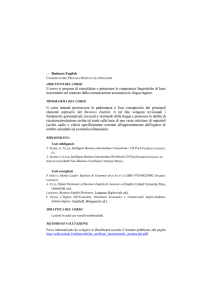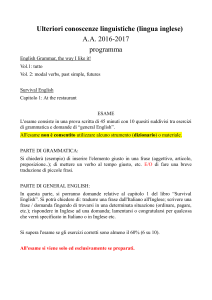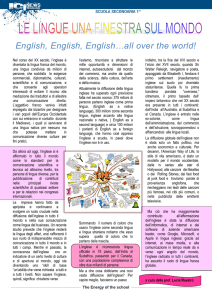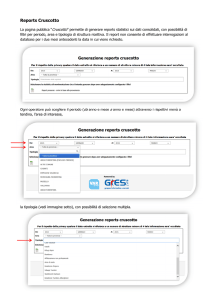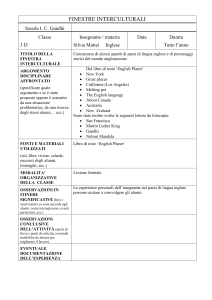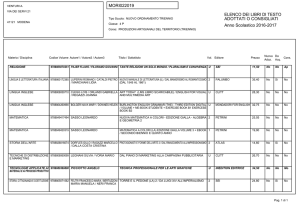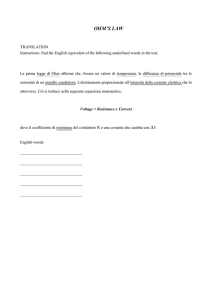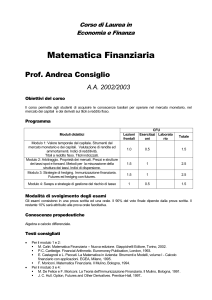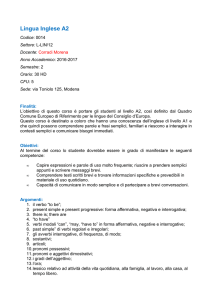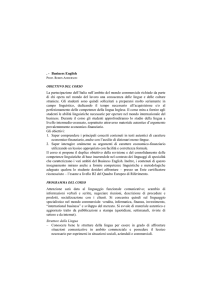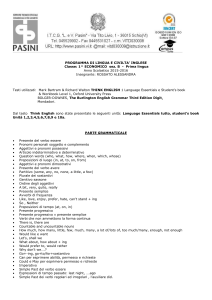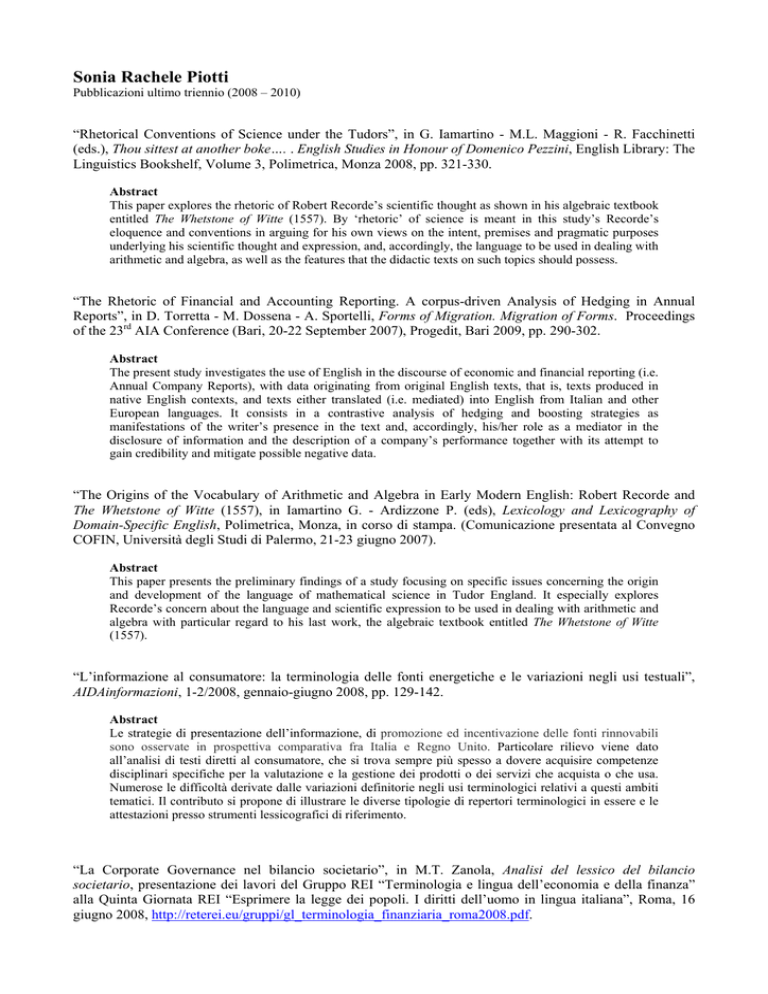
Sonia Rachele Piotti
Pubblicazioni ultimo triennio (2008 – 2010)
“Rhetorical Conventions of Science under the Tudors”, in G. Iamartino - M.L. Maggioni - R. Facchinetti
(eds.), Thou sittest at another boke…. . English Studies in Honour of Domenico Pezzini, English Library: The
Linguistics Bookshelf, Volume 3, Polimetrica, Monza 2008, pp. 321-330.
Abstract
This paper explores the rhetoric of Robert Recorde’s scientific thought as shown in his algebraic textbook
entitled The Whetstone of Witte (1557). By ‘rhetoric’ of science is meant in this study’s Recorde’s
eloquence and conventions in arguing for his own views on the intent, premises and pragmatic purposes
underlying his scientific thought and expression, and, accordingly, the language to be used in dealing with
arithmetic and algebra, as well as the features that the didactic texts on such topics should possess.
“The Rhetoric of Financial and Accounting Reporting. A corpus-driven Analysis of Hedging in Annual
Reports”, in D. Torretta - M. Dossena - A. Sportelli, Forms of Migration. Migration of Forms. Proceedings
of the 23rd AIA Conference (Bari, 20-22 September 2007), Progedit, Bari 2009, pp. 290-302.
Abstract
The present study investigates the use of English in the discourse of economic and financial reporting (i.e.
Annual Company Reports), with data originating from original English texts, that is, texts produced in
native English contexts, and texts either translated (i.e. mediated) into English from Italian and other
European languages. It consists in a contrastive analysis of hedging and boosting strategies as
manifestations of the writer’s presence in the text and, accordingly, his/her role as a mediator in the
disclosure of information and the description of a company’s performance together with its attempt to
gain credibility and mitigate possible negative data.
“The Origins of the Vocabulary of Arithmetic and Algebra in Early Modern English: Robert Recorde and
The Whetstone of Witte (1557), in Iamartino G. - Ardizzone P. (eds), Lexicology and Lexicography of
Domain-Specific English, Polimetrica, Monza, in corso di stampa. (Comunicazione presentata al Convegno
COFIN, Università degli Studi di Palermo, 21-23 giugno 2007).
Abstract
This paper presents the preliminary findings of a study focusing on specific issues concerning the origin
and development of the language of mathematical science in Tudor England. It especially explores
Recorde’s concern about the language and scientific expression to be used in dealing with arithmetic and
algebra with particular regard to his last work, the algebraic textbook entitled The Whetstone of Witte
(1557).
“L’informazione al consumatore: la terminologia delle fonti energetiche e le variazioni negli usi testuali”,
AIDAinformazioni, 1-2/2008, gennaio-giugno 2008, pp. 129-142.
Abstract
Le strategie di presentazione dell’informazione, di promozione ed incentivazione delle fonti rinnovabili
sono osservate in prospettiva comparativa fra Italia e Regno Unito. Particolare rilievo viene dato
all’analisi di testi diretti al consumatore, che si trova sempre più spesso a dovere acquisire competenze
disciplinari specifiche per la valutazione e la gestione dei prodotti o dei servizi che acquista o che usa.
Numerose le difficoltà derivate dalle variazioni definitorie negli usi terminologici relativi a questi ambiti
tematici. Il contributo si propone di illustrare le diverse tipologie di repertori terminologici in essere e le
attestazioni presso strumenti lessicografici di riferimento.
“La Corporate Governance nel bilancio societario”, in M.T. Zanola, Analisi del lessico del bilancio
societario, presentazione dei lavori del Gruppo REI “Terminologia e lingua dell’economia e della finanza”
alla Quinta Giornata REI “Esprimere la legge dei popoli. I diritti dell’uomo in lingua italiana”, Roma, 16
giugno 2008, http://reterei.eu/gruppi/gl_terminologia_finanziaria_roma2008.pdf.
Exploring Corporate Rhetoric in English: Hedging in Company Annual
Reports. A Corpus-assisted Analysis, EDUCatt, Milano 2009.
Abstract: Drawing from the literature on professional, organizational and
institutional practices in financial reporting, together with earlier literature on hedging
in general and on ESP in particular, the present study proposes a communicative
explanation for the use of hedging in company annual reports, as representations of
economics as discourse of economics activity, in which textual and interpersonal
features of meta-discourse are complementary. This book is divided into three
chapters. Chapter one forms the theoretical core of this study and presents a brief
survey of the relevant concepts and theoretical notions regarding hedging by offering
an overview of linguistic literature and earlier studies since the notion was introduced
in linguistics by G. Lakoff (1973). The chapter emphasises the complexity of this
phenomenon, which originated in logic and semantics but has been developed further
over time in pragmatics and discourse analysis and is now used in areas like
metacommunication and in communication strategies such as mitigation and
politeness. Chapter two concentrates on annual reports as a genre; it offers a
description of how Swales’ characterization of genre along with the professional and
statutory literature on financial reporting can be applied when it comes to defining
annual reports, thus providing a theoretical basis and rationale for the empirical study
carried out in chapter three. Chapter three provides an in-depth analysis of the
functions and types of hedging in a corpus of annual reports, using both corpus-based
and manual techniques. The data and methodology used are described and some of
the preliminary findings of the empirical study are introduced and discussed. The
chapter aims at looking at the ways in which hedging devices are used to “modalize”
or modulate discourse and claims in this form of corporate communication.)

